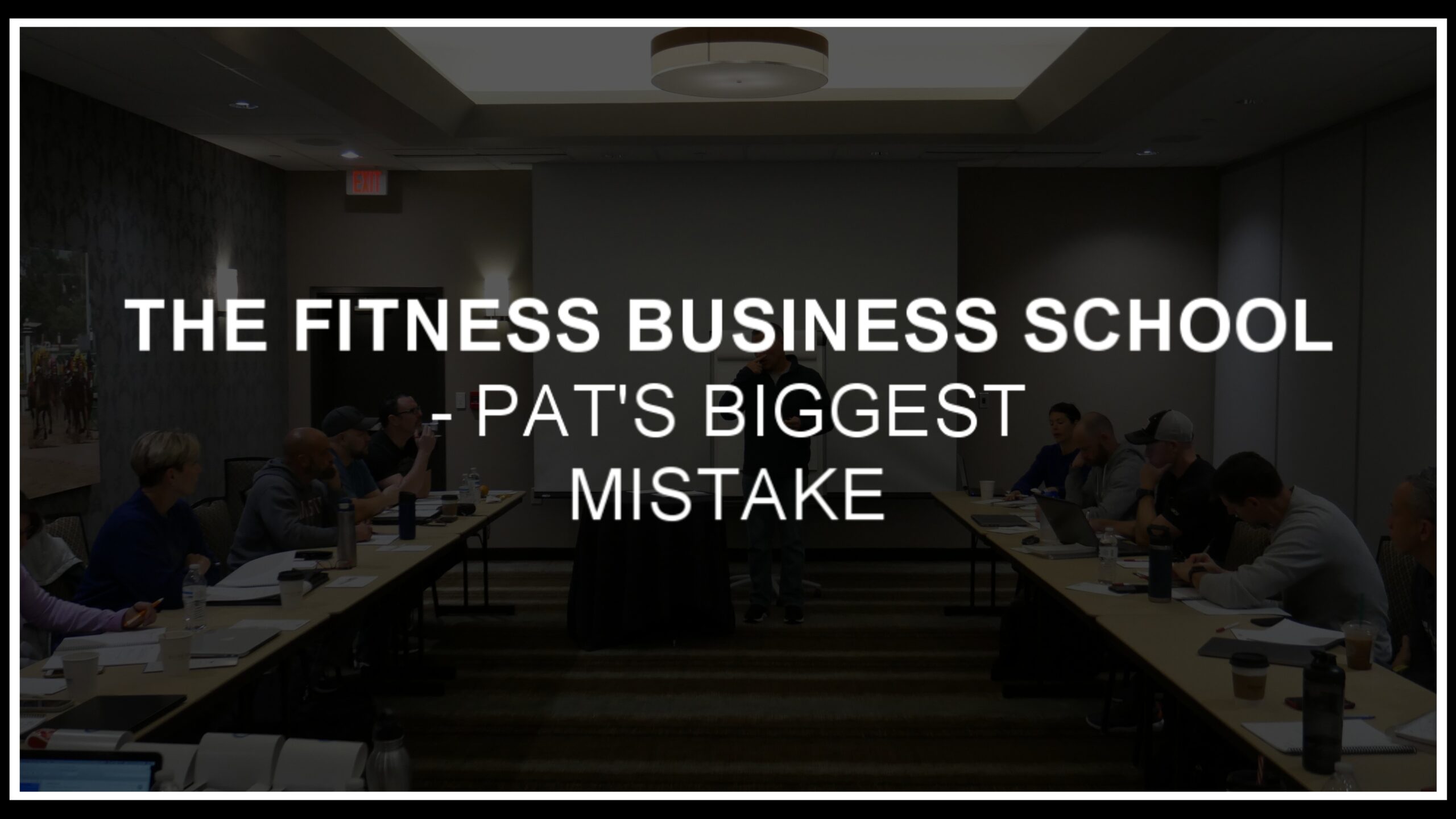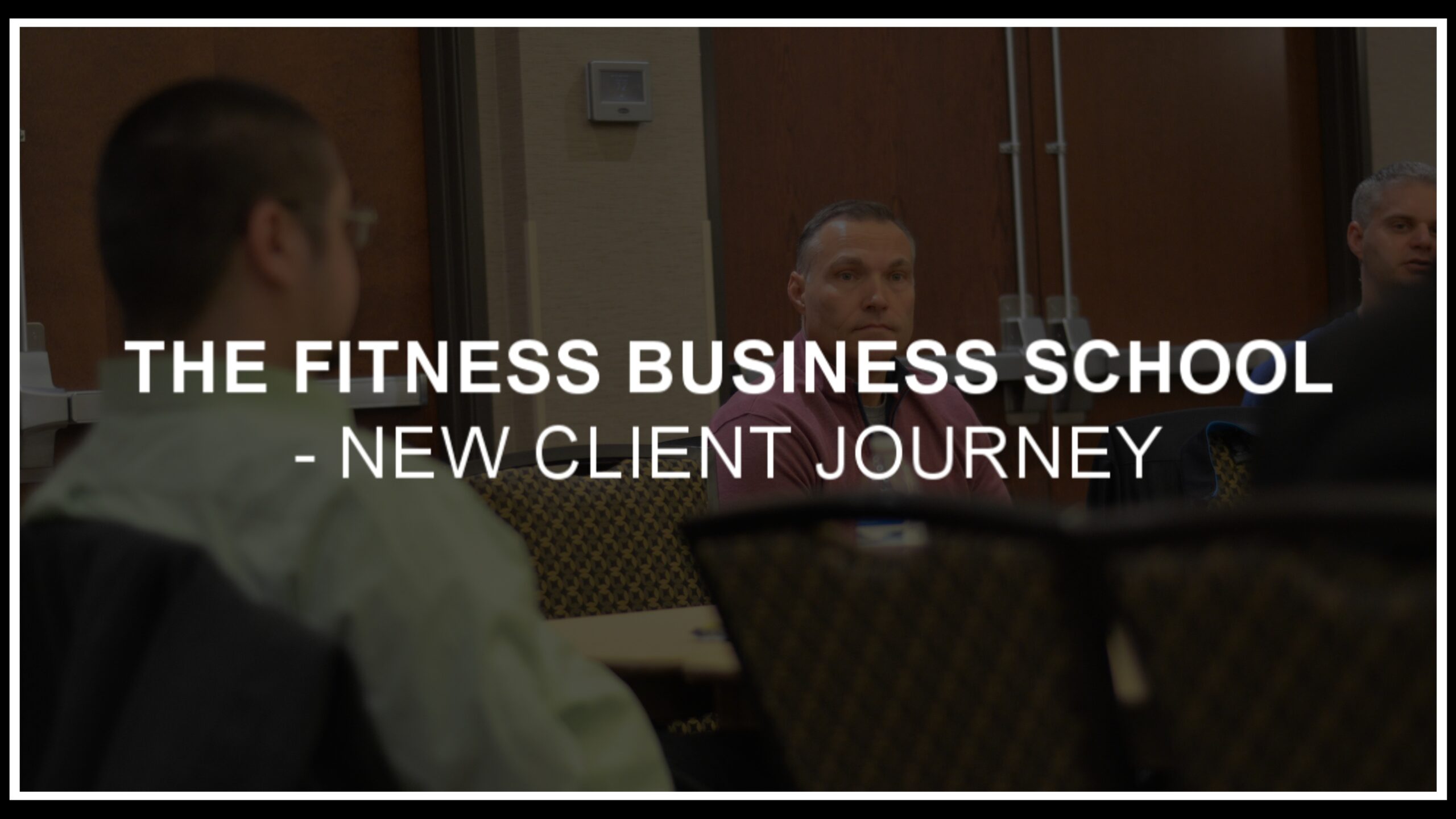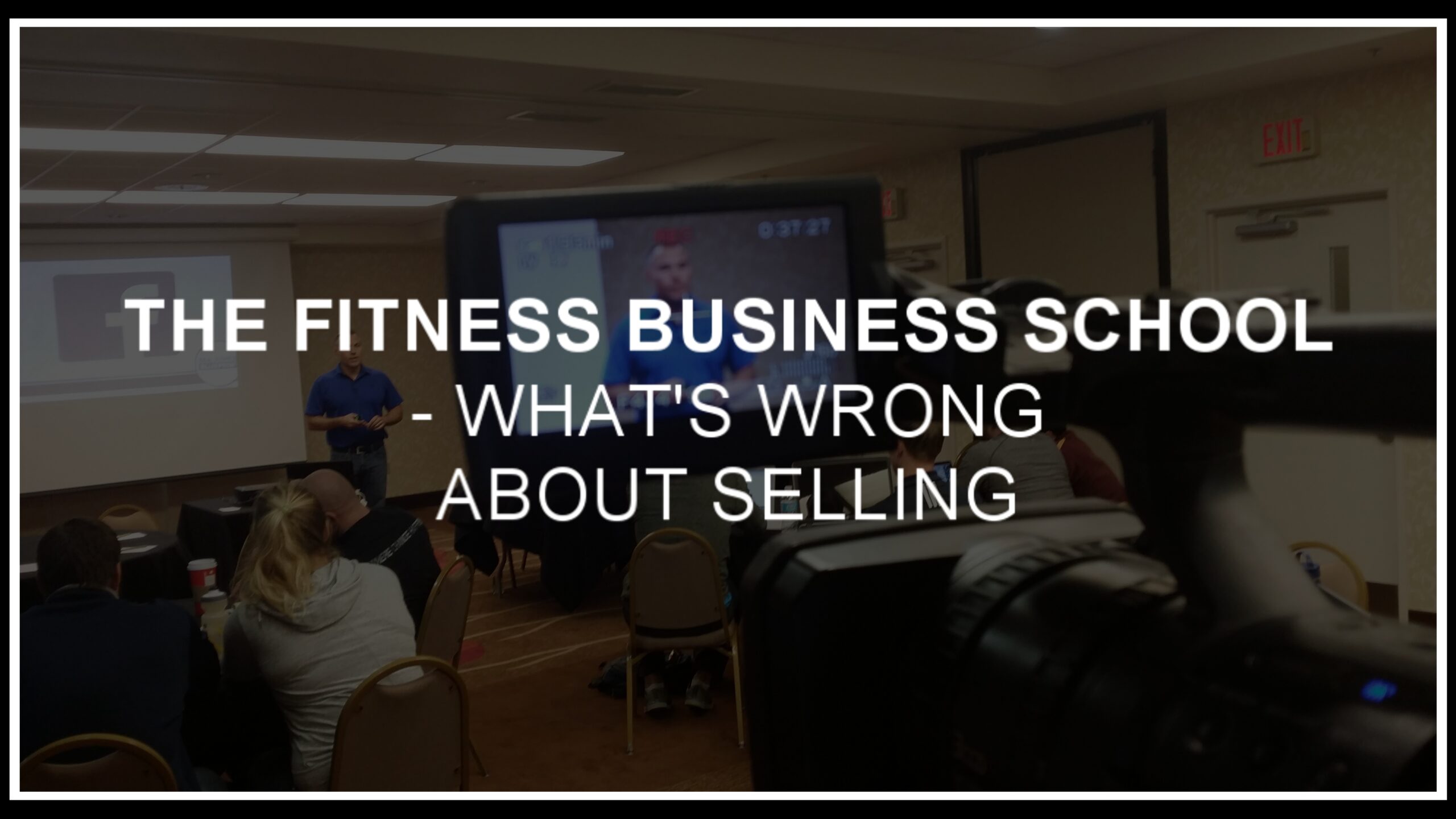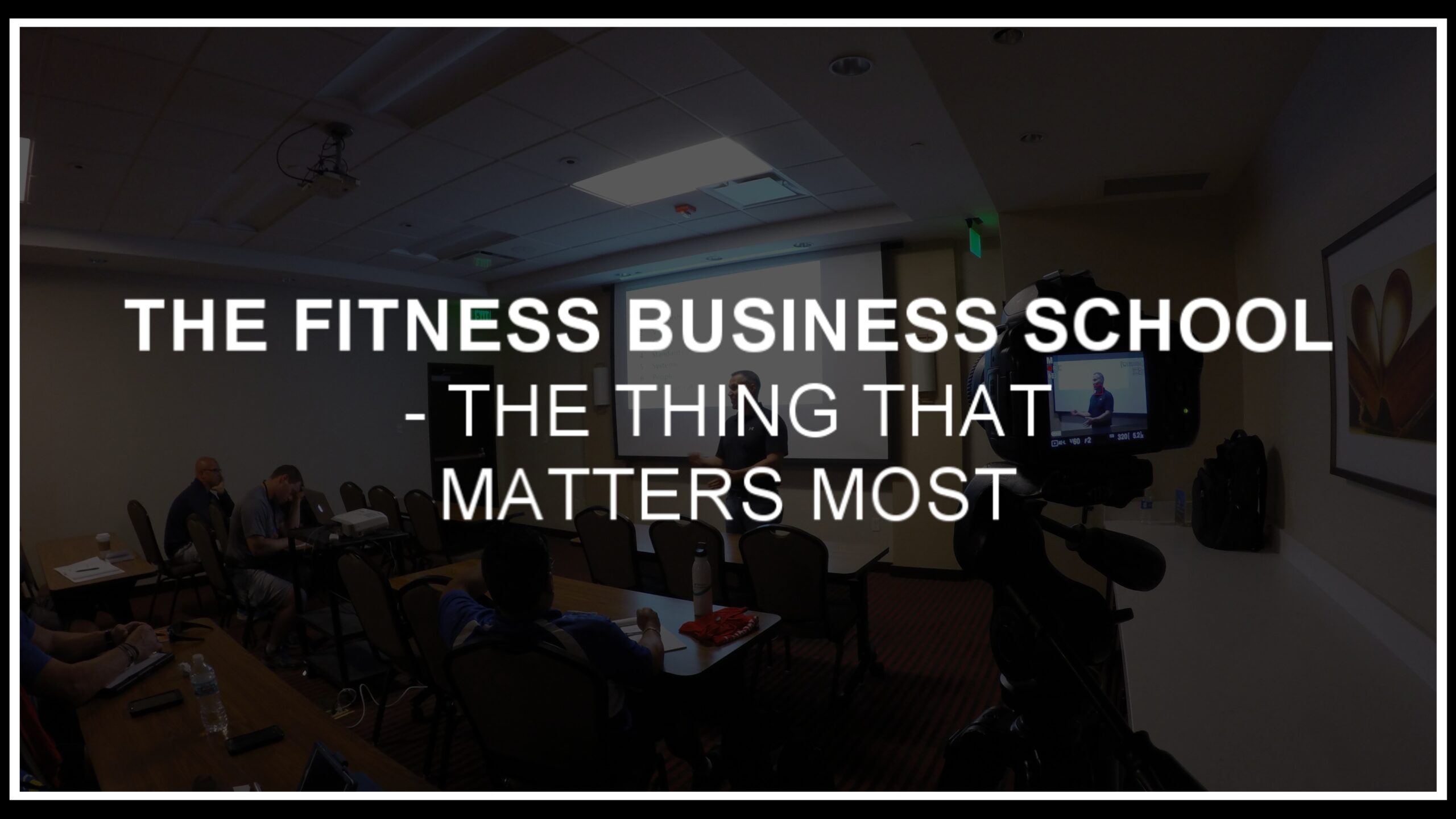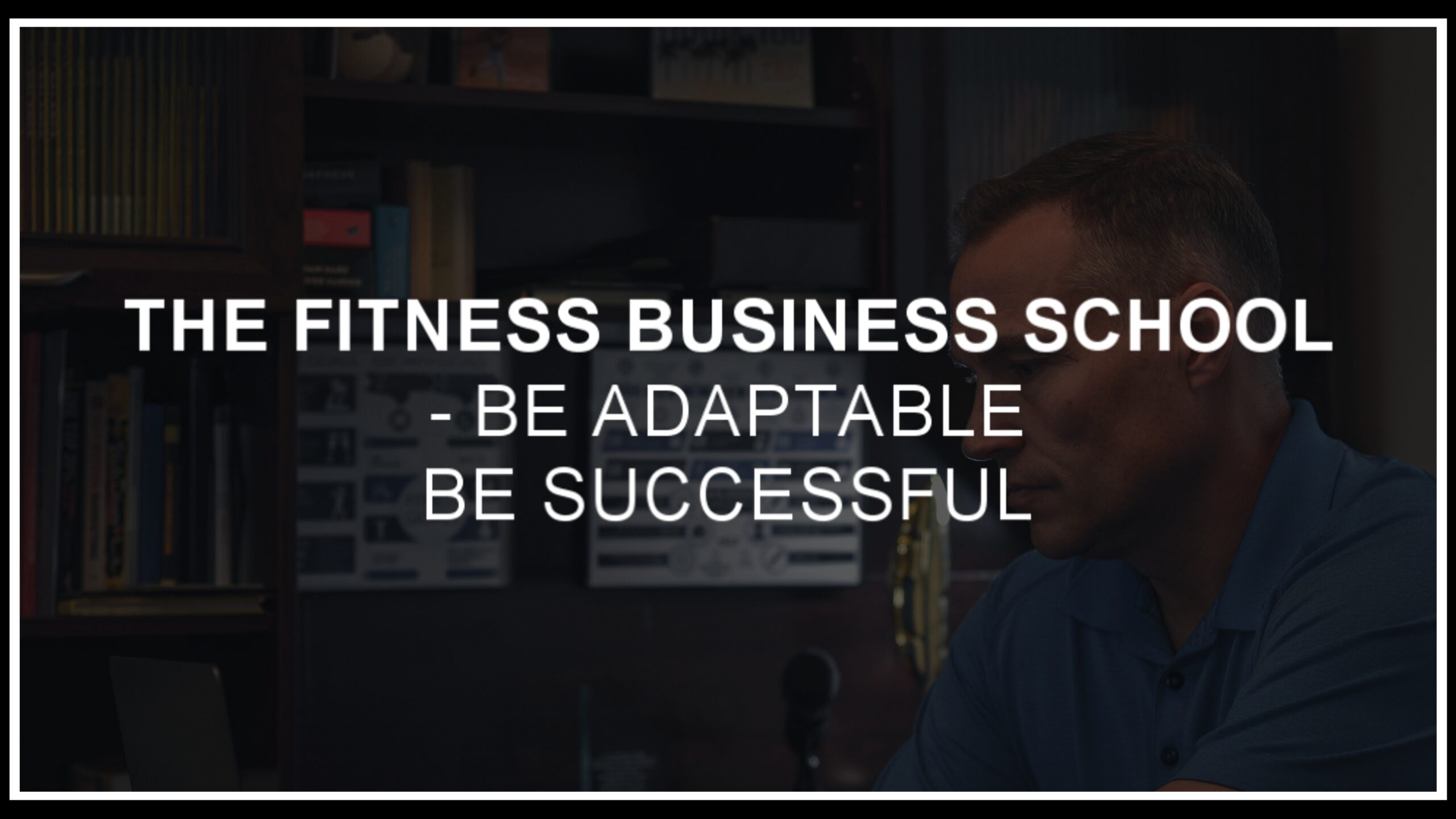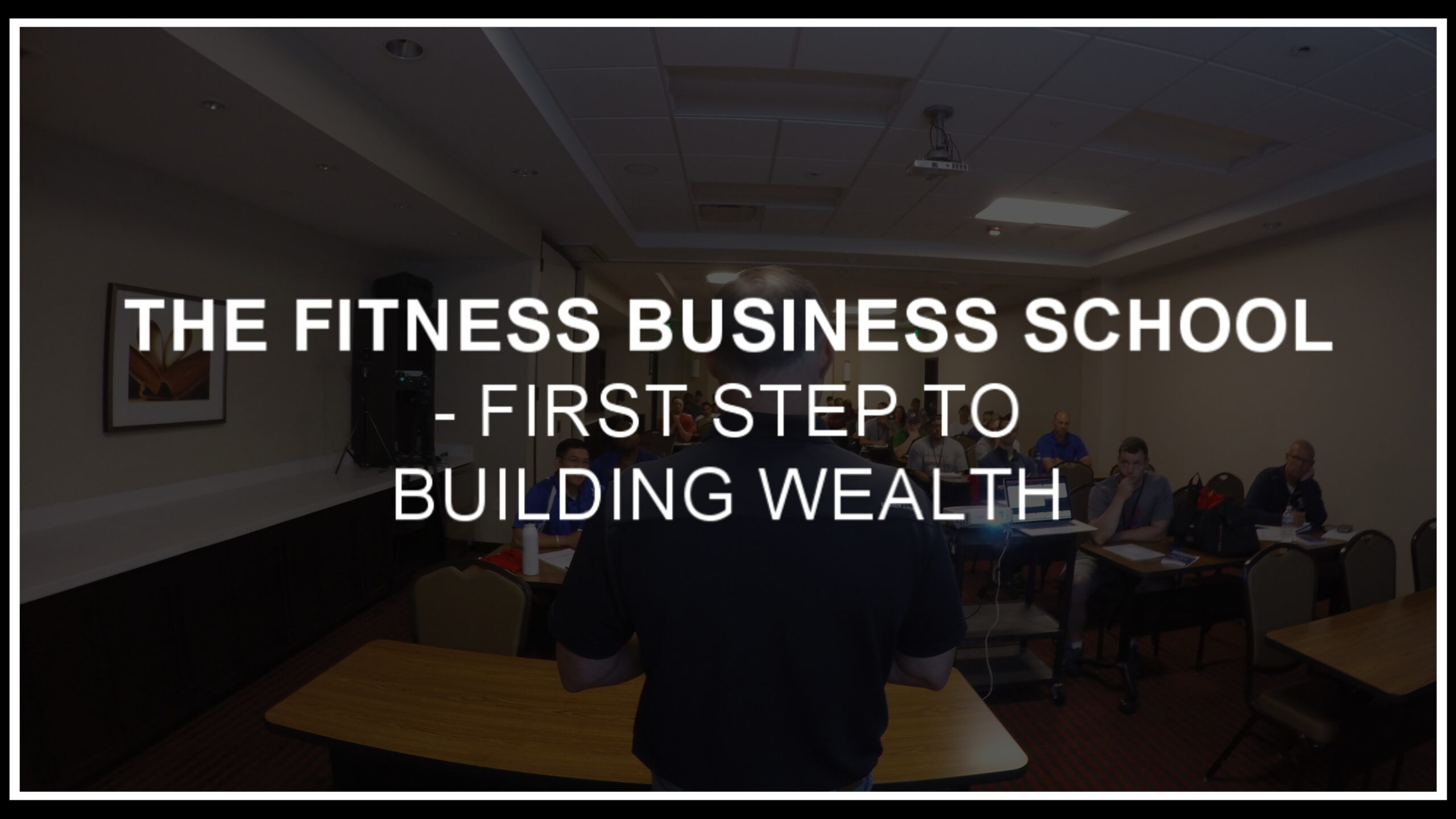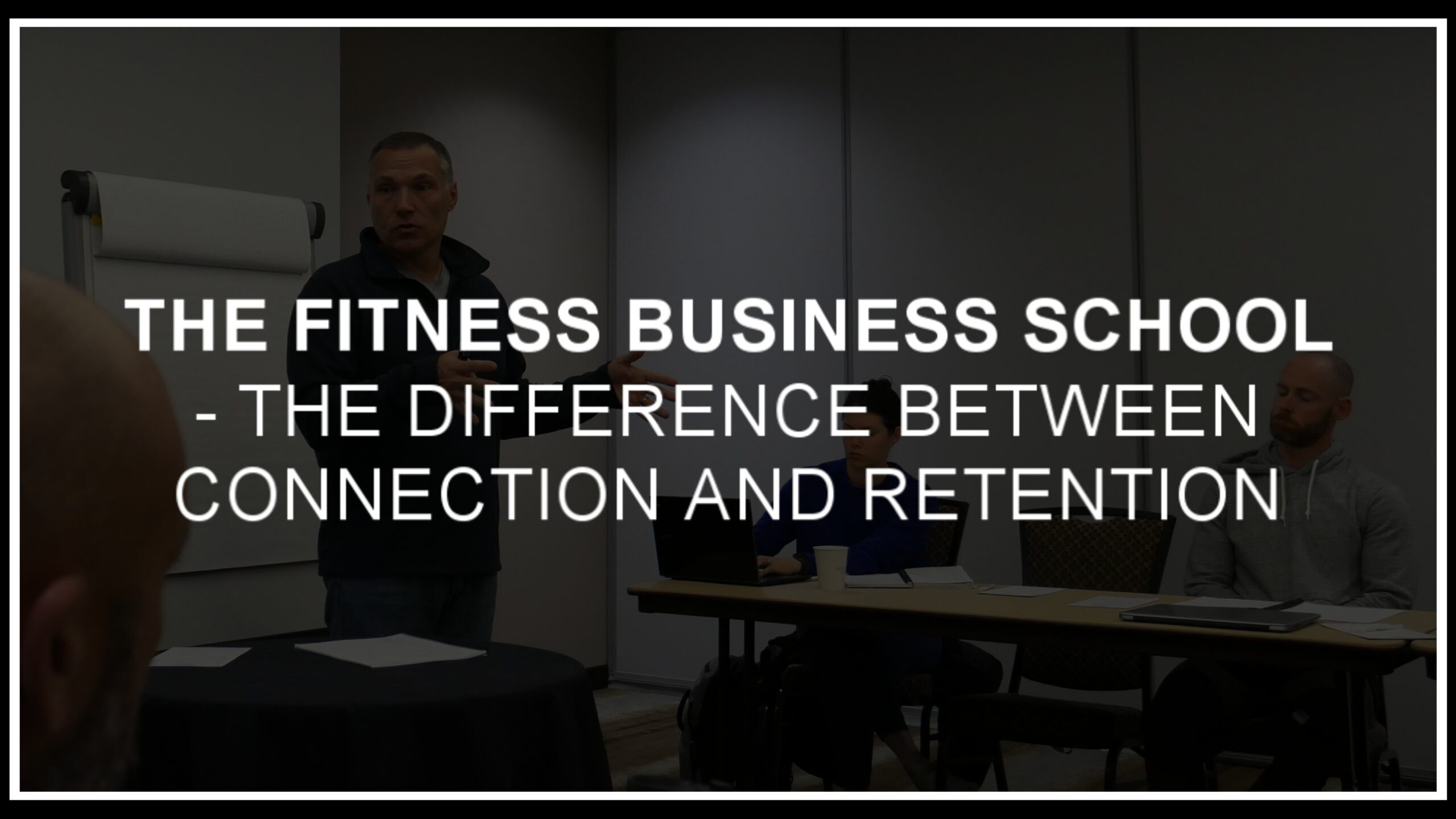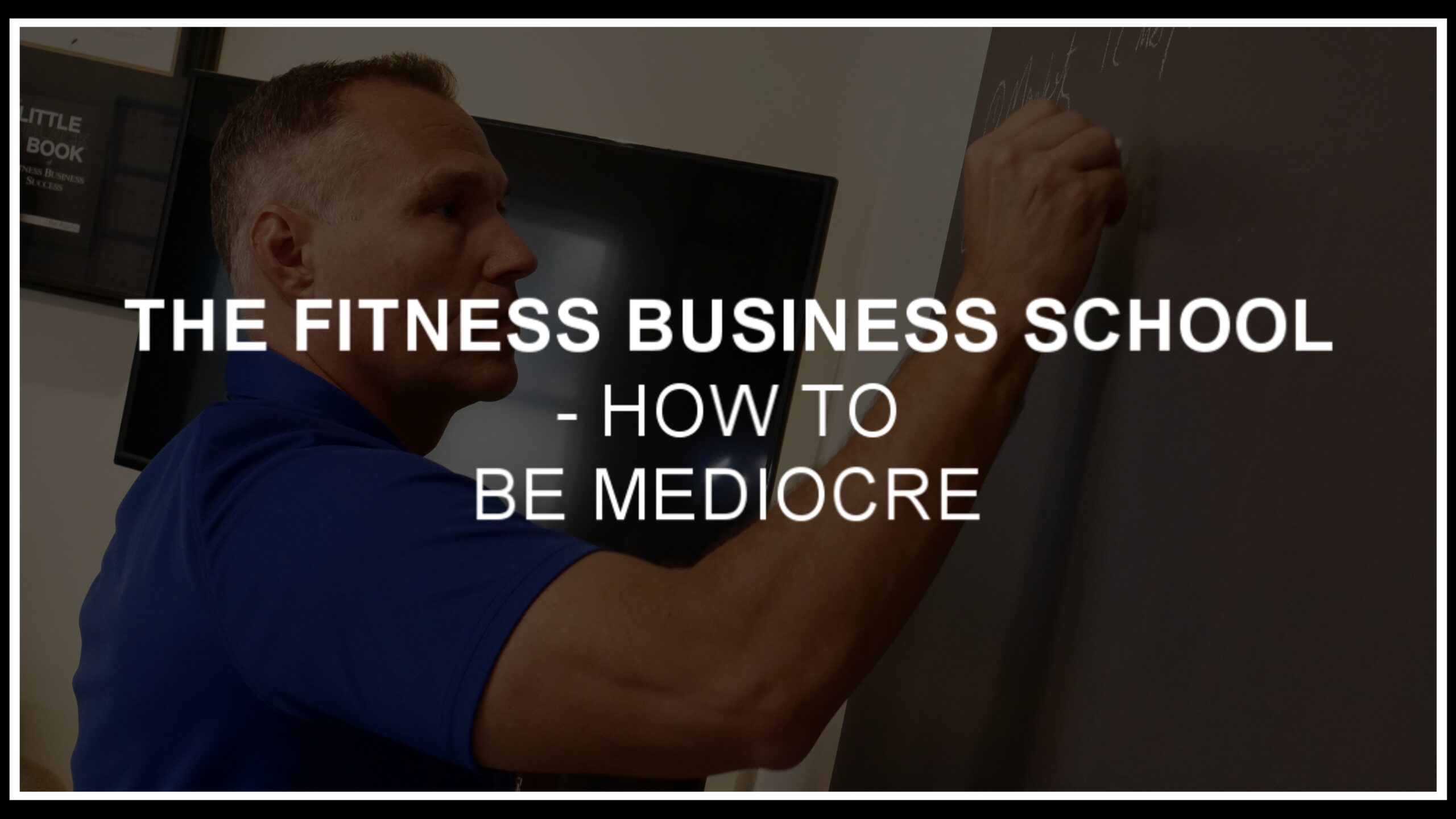Show Notes
00:00 Introduction and Episode Overview
00:26 Early Career Challenges and Realizations
02:42 Leveraging Personal Strengths
04:56 Transition to Business and Learning from Coaching
06:24 Consistency and Commitment
08:22 Building Around Strengths
11:43 Surrounding Yourself with Complementary Strengths
13:44 Conclusion and Special Offer
Full Transcript
Hey, Pat Rigsby here, and in today’s episode, I want to talk with you about building around your strength.
Welcome to the Fitness Business School podcast, the show for fitness business owners who want to grow their income, increase their impact and improve their lifestyle. Be sure to listen to the end of this episode because we have a brand new special offer exclusive for listeners. So stay tuned.
One of the things that I recognized early on in my professional life, really all the way back to when I was a college baseball coach, there were certain things that I just was not going to have in my favor, right? I hadn’t played in the major leagues. And actually the initial coach in the program that I ended out leading.
He was a star in the major leagues and I knew I wasn’t going to be that guy. I knew as a program, we didn’t have, we had, we played at a city owned field. We had the lowest budget in the conference. We had. The school had just shifted to becoming non scholarship to compete at a non scholarship level because their intent, which never really came to pass was to start football.
And that’s how I got the job, right? We’re competing still for the next three years against scholarship opponents or four years or something with no scholarships. And so needless to say, it wasn’t exactly this wonderful opportunity in many ways. But beyond that, there were plenty of other things that I just didn’t have.
Working in my favor, right? I didn’t, obviously I was the youngest head coach in the country, so I was very inexperienced. So I was always at the bottom end of the totem pole from an experience standpoint. I hadn’t played in an environment where, or hadn’t been exposed to what great college programs look like.
I had never really been part of a great college program as a player. And so I didn’t have something to just go model directly. These are all weaknesses. And sometimes I think that the That is something that really bogs people down and they use that as an excuse. And maybe there’s some validity to that.
But for me, I just looked at this as almost like the pros and cons list, right? Like I, I just saw those as realities. That was just what. landscape was, what I was dealing with. And so I started to look at, okay, what do I have working in my favor? And early on when I was 23, it was like, Hey, I’m single and young and I can commit to lots of hours and doing this.
I don’t have a family that I’m, there’s not that internal tug of war that, Hey, I need to be home. I, Didn’t mind making recruiting calls late at night or anything like that. I knew the university well, I had graduated from there. So I felt like I could be an advocate for it. I could relate in many ways to players.
I still understood what their interests and priorities were. And I was just eager. And so I was willing to do some things other people wouldn’t do. I would go to any camp. where the coach had some success and they would have me and I would try to learn from them and ask questions and study and all that stuff.
And I was willing to solve problems differently. I was willing to do things differently than my opponents because I felt very much that I couldn’t do things the way that They would do them and be as good because if they had better resources and more experience and more scholarships, then there’s no way I could compete apples to apples and win.
So I just knew, Hey, I’m willing to do things differently. I’m passionate about strength and conditioning. And I think if I can’t recruit better athletes, I can make the athletes I have better. And so there were just things like that helped. And eventually that approach parlayed itself into us becoming a nationally competitive program, still with the same kind of resources, still bottom of the barrel resources, almost laughable in that When we finished fifth at the World Series, they wrote an article about us, about how we had one pair of pants as a team.
Alex’s travel teams always have three, and it’s, and he’s 13. And there were just, some of those things were just, wonderful lessons in how this worked as we went on. So when I got into the business side of things, I instinctively knew that there were lots of things I was behind on. I did not understand business.
I did not have deep pockets or a financial backer to help me get started. I had no business degree. I knew some of my, Limitations. I’m not some professional bodybuilder that was just going to walk into the room and say, Oh, wait a minute. You know what? That person is six to two 20 with 8 percent body fat.
So I’ve got to listen to them because they know exactly what they’re talking about. And. There, there were some of these things that it was just like, man, okay, that’s the landscape as it is. But I had learned a lot from my time coaching college baseball. And I said, okay, what can I do? Same thing. I love being a relentless learner.
I wanted to learn new things and I was willing to test pretty much anything. I’d learned some marketing stuff through marketing and selling through recruiting and had become pretty, pretty adept at it. I learned how to. Coach and create systems and programs and processes and through being a college baseball coach, college strength coach.
And it was good at that side of it. There, there were other things that I was just really strong at. I was to this day, I’m still very consistent. I am still I’m the guy who’s written a daily newsletter, send a daily newsletter for. 18 consecutive years without missing a day. We’re well over 400 podcast episodes.
Now it’s, I pride myself in being that person who just shows up and does what is needed time after time. And so I may not be. as big a personality or is charismatic as some of the people like you see on camera or the Tony Robbins S people that just command the stage. But I know who I am and what I do.
And after coaching people for, 30 years, I think I understand how to make somebody better and bring out the best in somebody, help them reach their potential better than pretty much anybody else I would ever compete with, not only in the fitness industry, but just in general, in business coaching. And that I think is, that’s where my strengths lie is the coaching side of it and the understanding who the people are when they get into this.
Because I understood my limitations. I grew up as a son of a small business owner. So understood those challenges. So there are a lot of things where I think I can empathize and relate. And I see those as strengths. So if I think about consistency, if I think about trying to find ways to make things simpler for doing what needs to be done to get to where somebody wants to go, understanding the entirety of coaching, understanding systems and processes and people, and those are my strengths.
That is What I’m going to build around. And so I tell you this because there are plenty of people who will talk to me and tell me why things aren’t working. We’ll see posts in groups. We’ll see people who are, are even they joined programs and they’re quick to tell me why things aren’t working.
They will tell me how they want things to be, but at no point in time have they ever. Seen themselves real and said, okay, what are my strengths? What can I build around? What can I be consistent with? What am I willing to do for the next year? Even if there’s no immediate gratification or immediate reward, because I know that if I get good at it, it’s going to pay off.
And it’s one of those wonderful lessons that, man, when I get people to buy into it. It’s gold. And if I get people to, to say, okay, yeah, I am going to build around my strengths and these are the things that I’m good at, then they’re going to be so much better off. And they, and it allows them to detach from that shiny object syndrome, right?
That shiny object. Hey, I see this other person doing this thing. So I want to do that because they’re successful and whatever. And I’m like, man, that’s not how this works. I remember when we were launching athletic revolution, the first of the two franchises that I launched and Brian Grasso was of the IYCA and Brian was really charismatic and a big personality and a really eloquent public speaker and he had enjoyed a lot of the success that he had really on, on the shoulders of that, right?
Like he, He could go fill up a coaching program because if he got in front of parents or coaches and was able to do a public speaking engagement, he was going to be incredibly influential and persuasive. And the same thing would hold true at live events. He could get people excited about joining programs and rolling certifications, whatever else.
So Brian was like, we just need to teach these guys to go be public speakers. And they’ll go fill up all their franchises. I’m like, man, that’s not, they’re not you, right? Like they’re not, they don’t have the same strengths. They don’t have the same wiring. They don’t have the same set of experiences. So we’ve got to figure out.
The way that we can build around them, that it doesn’t take some sort of really unique characteristics and traits to pull something off. And so everything that I’ve built, that’s why so much of what we do in our coaching, we build around frameworks and templates and let people kind of color in things with their own strengths and personality.
But man if you can get somebody to play to their strengths and they commit to it and they don’t get distracted and they’re willing to persevere, the results are just incredible. And in many ways, I’ve tried to surround myself with people who had different strengths because the world doesn’t need a bunch of me.
They, but there are plenty of other people that can add to this and illustrate how having different experiences and strengths can still lead to success. So when you see the people on our coaching team, I’ll use my wife as an example. We definitely have very different personalities. There are certain things that she’s just an absolute rockstar at that.
I just probably fumble through. And there are certain things that I have been really successful with and have experiences doing the, that are not. Her cup of tea, so to speak. So you can do great work, but you’ve got to be willing to say, I’m going to do great work in my lane and I’m not going to get distracted by what somebody else is doing in their lane and I’m not going to worry about their social media profile telling me that this is how you go get a Maserati or get a private jet or whatever else and I’m not going to think that it’s easy it’s if you wanna build a great business, if you wanna build wealth as a fitness business owner, if you want to build financial security, if you wanna have a systematic business that allows you to have some flexibility or even freedom, you’re gonna have to do some stuff other people don’t do.
And you’re going to have to be willing to persevere when they won’t. And you’re gonna have to start when it’s not easy. But if you do, there are plenty of rewards. There’s the pot of gold at the end of the rainbow. That most people think is imaginary because they’re just not willing to do the work to get there So if you want to build a great business, start with your strengths, build around those, stick to it, persevere, success will be yours.
Thanks for listening to this episode of The Fitness Business School.
Before you go, I have a quick announcement:
One of of the things that we’ve been doing with our current clients is taking them through this Ideal Business diagnostic and really what it is, this checklist that allows you to pinpoint exactly what your business needs next so you can keep improving, keep growing, and build a business that you love to own, one that pays you well, one that allows you to have the impact you wanna have and one that allows you to have a lifestyle that you truly enjoy.
In this diagnostic, we walk through everything and we do an evaluation and can instantly pinpoint what you need to do next to build that business that you want. I’m going to extend this opportunity to get on with either me or my team and take you through this evaluation and fix your business’s most vital needs fast.
So if we take you through this, you’re gonna be able to make those vital changes that you need to finally have what I call your Ideal Business. If you’d be interested in going through this entirely free, risk-free diagnostic with us and learn what you already have in place, what you’re doing well and where are your greatest opportunities for rapid improvement are just shoot me an email with diagnostic in the subject line to [email protected].
Again, an email to [email protected] with diagnostic in the subject line will get
you scheduled and take you through this evaluation to help you build the business you want.


